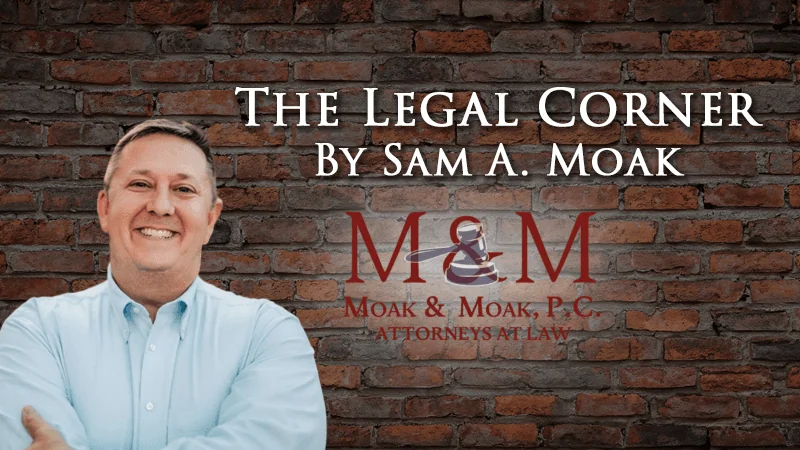The information in this column is not intended as legal advice but to provide a general understanding of the law. Any readers with a legal problem, including those whose questions are addressed here, should consult an attorney for advice on their particular circumstances.
There is No Such Thing as a Free Lunch
I have written this article several times in the past, but it is a continuing problem and one of my personal pet peeves. This past week, I ran across an advertisement for a LIVING TRUST SEMINAR and so, I continue my battle against these Snake Oil Salesman. The particular outfit that is putting on this coming seminar is from Tennessee. The promise a “free” seminar at the Holiday Inn Express & Suites where they will try and scare folks into buying their product, a living trust. However, this was another clever marketing ploy to attract senior investors and the product they are selling is useless, costly and quite frankly, a pain in the rear to maintain. This large segment of our society is often invited to “seminars” or “free lunches” for the senior investor. But remember the wise old saying, “There is no such thing as a free lunch.”
“Free educational seminars” are often offered by some group (as this upcoming one is, from out of state or backed by an out of state company) promising to show those over 55 how to avoid probate, reduce or eliminate taxes (cut the IRS out of your Will), and promoting the need for a living trust. Some offer unnecessary partnerships, limited partnerships, “family” partnerships, and limited liability companies.
The State Bar of Texas has issued an advisory opinion regarding advertising and promoting living trusts for attorneys. Attorneys are not supposed to advocate a living trust over a Will or vice-versa. They should give you the pros and cons of both documents. However, these con artists are not bound by any such rules.
It’s easy enough to become a victim. Living trust sales are a growing area of consumer fraud. Con artists make millions of dollars every year selling unnecessary trusts. Each year, thousands of consumers lose from $500.00 to $5,000.00 through the purchase of living trusts. Often, families face potentially greater costs after the consumer’s death, resulting from problems associated with the trusts.
What You Can Do To Protect Yourself
It is very difficult to get your money back if you are cheated in a living trust scam. So before you buy, and better yet, before you allow a salesperson in your home, remember:
1. Take time when making your decision. Do not fall victim to high-pressure “act immediately” sales tactics. Avoid buying on impulse.
2. Never respond to an offer you don’t thoroughly understand. Legitimate advisors understand when you want more information about their services or products.
3. An age old adage works well here, “If it sounds to good to be true, it probably is.” Often a trust sounds like just the right solution, but in reality it can cost 4 to 5 times as much to create a trust as the cost of a good Will and you receive no more benefit.
4. Seek the advice of someone knowledgeable whose advice you value when considering an estate plan. Seek the advice of your accountant, estate planning attorney, banker or reputable financial advisor. Be sure you are working with someone with the necessary training, education and experience.
5. If you conclude that a trust may be right for you, deal directly with a licensed Texas attorney who has substantial expertise in estate planning and Elder Law.
The laws which apply to trusts vary from state to state. Forms, kits or computer software programs may not be tailored to the requirements of Texas law. A licensed Texas attorney with expertise in estate planning and Elder Law should prepare, or at least review, your living trust. Also, a trust prepared by an attorney will generally cost less than the prices charged by trust salespersons.
Next week I will discuss some of the more common tactics employed by Snake Oil Salesmen.
Sam A. Moak is an attorney with the Huntsville law firm of Moak & Moak, P.C. He is licensed to practice in all fields of law by the Supreme Court of Texas, is a Member of the State Bar College, and is a member of the Real Estate, Probate and Trust Law Section of the State Bar of Texas.


